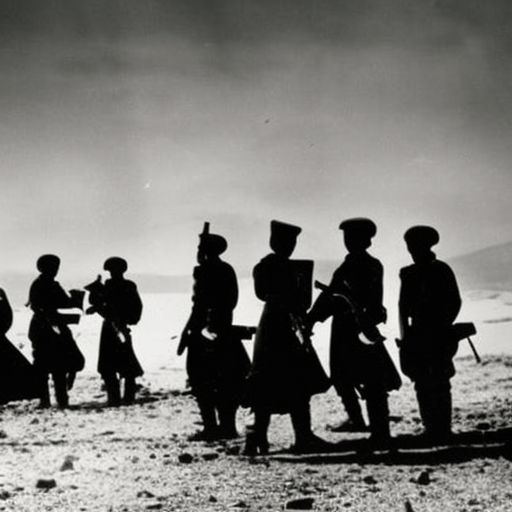Summary:
The Second Anglo-Afghan War was a conflict that took place from 1878 to 1880 between the British Empire and the Emirate of Afghanistan. The war was primarily fought over British concerns about Russian influence in Afghanistan and the desire to establish a more favorable government in Kabul. Despite initial British success, the war ended in a stalemate and resulted in the signing of the Treaty of Gandamak, which allowed the British to control Afghan foreign affairs.
Background:
The First Anglo-Afghan War, which ended in 1842, had left a bitter legacy for the British. The British were concerned about Russian expansion in Central Asia and saw Afghanistan as a buffer state. They wanted to maintain control over Afghanistan’s foreign policy to prevent it from becoming a Russian ally. In addition, the British were dissatisfied with the Afghan ruler, Sher Ali Khan, and sought to replace him with a more compliant leader.
British Invasion:
In 1878, the British launched a military expedition into Afghanistan, known as the British Invasion. The British forces quickly captured several key cities, including Kabul, and installed a new ruler, Yakub Khan, who was seen as more favorable to British interests. However, the British faced significant resistance from Afghan tribesmen, who launched a guerrilla war against the occupying forces.
Stalemate and Negotiations:
As the war dragged on, the British found it increasingly difficult to maintain control over Afghanistan. The Afghan tribesmen, led by figures such as Ayub Khan, launched several successful attacks against British forces. In 1880, the British suffered a major defeat at the Battle of Maiwand, which further weakened their position.
Realizing the difficulties of maintaining control, the British government decided to negotiate a peace settlement. The Treaty of Gandamak was signed in May 1879, which allowed the British to control Afghanistan’s foreign affairs. However, the British had to withdraw their forces from Afghanistan and recognize Yakub Khan as the legitimate ruler.
Aftermath:
The Second Anglo-Afghan War had significant consequences for both Afghanistan and the British Empire. The war further weakened the Afghan monarchy and increased tribal rivalries within the country. It also led to a growing anti-British sentiment among the Afghan population.
For the British, the war highlighted the challenges of maintaining control over Afghanistan. The British government realized that direct rule was not feasible and instead adopted a policy of “scientific frontiers,” which aimed to establish a buffer zone between British India and Russian Central Asia.
The war also had wider implications for the Great Game, the geopolitical rivalry between the British and Russian Empires in Central Asia. The British victory in the war prevented Russian influence from expanding further into Afghanistan, but tensions between the two empires continued to simmer.
In conclusion, the Second Anglo-Afghan War was a conflict fought between the British Empire and the Emirate of Afghanistan. The war was primarily driven by British concerns about Russian influence and the desire to establish a more favorable government in Kabul. Despite initial success, the British faced significant resistance and the war ended in a stalemate. The Treaty of Gandamak was signed, granting the British control over Afghan foreign affairs. The war had lasting consequences for both Afghanistan and the British Empire, shaping the geopolitical landscape of Central Asia.












